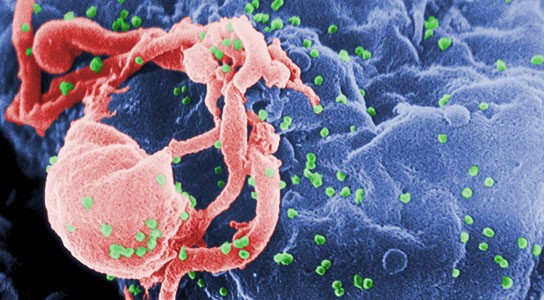Alcoholism drug disulfiram touted as 'game-changer' in search for HIV cure

A drug used to treat alcoholism has been described as a "game-changer" in HIV treatment – and may one day lead to a cure. Disulfiram was discovered in the 1920s and is used to treat chronic alcoholism by producing an acute sensitivity to ethanol.
However, scientists in Australia carried out a clinical trial to analyse its potential to treat HIV. Publishing their findings in The Lancet HIV, the team from the University of Melbourne and the University of California, San Francisco, found the drug was capable of activating HIV hidden in the body.
In their study, disulfiram was given to 30 HIV positive patients who were taking suppressive anti-retroviral therapy (ART). They were given increasing doses over three days. On the highest dose, researchers found evidence that dormant HIV was being activated – but without resulting in any adverse effects.
Study leader Sharon Lewin said: "This trial clearly demonstrates that disulfiram is not toxic and is safe to use, and could quite possibly be the game-changer we need. The dosage of disulfiram we used provided more of a 'tickle' than a 'kick' to the virus, but this could be enough. Even though the drug was only given for three days, we saw a clear increase in virus in plasma, which was very encouraging."
HIV latency is one of the biggest problems in finding a cure for HIV. The virus remains dormant in the bodies of those taking HIV, so waking it up and killing these cells is one of the strategies being looked into by scientists in search of a cure. However, finding the right combination of drugs to do this has been a challenge, with the toxicity of the drugs causing problems.
Other avenues of research has looked at using a "powerful weapon" to shock the HIV virus out of latency, but these can prove harmful to the patient. Study collaborator Steven Deeks said: "I see disulfiram as a more gentle way to accomplish this same goal, particularly if we can show it works when given over a long period of time."
Julian Elliot, first author of the study, said the findings were promising and further research was warranted: "The next step is to get these cells to die. Waking up the virus is only the first step to eliminating it. This is a very important step as we have demonstrated we can wake up the sleeping virus with a safe medicine that is easily taken orally once a day. Now we need to work out how to get rid of the infected cell. A kick-start to the immune system might help. We have an enormous amount still to learn about how to ultimately eradicate this very smart virus."
© Copyright IBTimes 2025. All rights reserved.






















